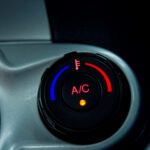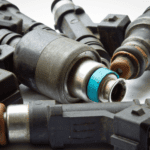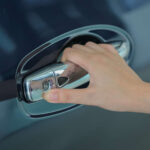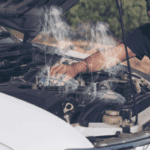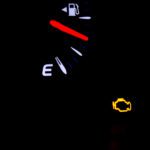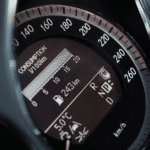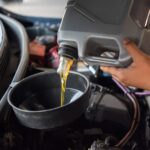It may be your first time owning a diesel vehicle with an AdBlue system. The blue light may surprise you with a countdown timer. But what happens if you run out of AdBlue?
This is a valid question that it is best to avoid experimenting with.
Instead, let’s keep you out of harm’s way and save you unnecessary costs. Running out of AdBlue is bad – simple and clear.
Let’s cut to the chase.
Running out of AdBlue will not destroy your engine or cause any damage to the engine and its components. However, vehicle-imposed restrictions could either stop the car from running until you refill it again or make the vehicle enter limp mode. Either way, this could put you and the car’s occupants in harm’s way.
What Is Adblue?
Adblue is a synthetic carbamide solution(chemical urea) diluted with pure de-ironized water. It has many names, such as Diesel exhaust fluid or DE Fluid for short, but it is known as AdBlue.
I’m sure you’ve heard the story that people believe AdBlue is pigs’ urine. But, it is not valid. Chemical urea is in pig urine, which is where people make the connection. But, it’s found in a much lower quantity than the amount produced for AdBlue.
What Does AdBlue Do?
The job of AdBlue is simple: it is to reduce vehicle emissions. Many vehicles after 2015 have a Selective Catalytic Reduction (SCR) system. The SCR uses AdBlue, which is injected into the exhaust gases in minimal quantities. The AdBlue injected into the exhaust gases passes through the SCR. A chemical reaction converts harmful exhaust gases into nitrogen and water.
This reduces diesel vehicle emissions and makes for a much cleaner exhaust system. AdBlue is now an essential part of modern diesel engines. The addition of AdBlue allows modern diesel vehicles to meet lower emission regulations.
AdBlue has been used in trucks and buses since 2006 with the introduction of Euro4 emissions. Yet, it is still very new to cars, SUVs, and 4x4s.
What Happens if You Run out of Adblue?
If the AdBlue runs out, the car will not start until it is refilled. The good news is that running the car without AdBlue won’t cause any damage to the engine.
However, driving without AdBlue would make the emissions illegal per the EU6 emissions legislation. This is because the legislation permits driving vehicles under specific emissions levels. Therefore, manufacturers have removed the option of driving illegally without any AdBlue.
Some older vehicles that use AdBlue have a more severe approach to running out. If the AdBlue system runs down to 0 miles, the car will enter a “limp home mode.”
Limp Mode
Limp mode is an engine protection mode pre-programmed into the vehicle. It’s designed to stop you from causing damage to the car by driving when there is a fault. The vehicle will struggle to speed up past 50km/h (30mph) and hold back under acceleration. Due to the nature of achievable speeds, limp mode can put you in a dangerous situation, especially when traveling on a much faster road.
Your vehicle will warn you that the AdBlue tank needs refilling with plenty of time. The light will illuminate when around 2414 km (1500 miles) are left. Remember, each car will differ slightly.
When you run out of AdBlue and enter limp mode, the vehicle will not switch back on after switching off. The car should just restart once the AdBlue is refilled. However, some vehicles require the car ignition to be switched on for a few moments to allow calibration before starting; your car handbook will confirm the process.
How Long Does Adblue Last?
While in the car AdBlue can last for 3,000 to 10,000 kilometers. In normal driving conditions, cars typically consume around 0.22 gallons (1 liter) per 804-965 km (500-600 miles).
It’s important to note that AdBlue does have an expiration date. It can be stored unopened for 12-18 months, after which it loses its effectiveness. If you want to learn more about AdBlue expiration, you can read about it here.
While AdBlue freezing at 12 degrees Fahrenheit (-11 degrees Celsius) is not a problem while in the car, it can be an issue when stored in bottles. AdBlue expands when it freezes, which can cause the bottles to crack. However, most vehicles have their own AdBlue heater to prevent this from happening.
Where Can You Buy AdBlue?
AdBlue is available at most gas station forecourts, hardware, grocery stores, and online. AdBlue is usually supplied in 5l and 10l bottles. Your vehicle handbook will tell you the size of the fluid tank fitted to your vehicle.
Because AdBlue doesn’t store very well once opened, only buy what you need. When opened, AdBlue exposes itself to air, losing its strength, so it doesn’t stay useable for long. Unfortunately, if you buy too much, the excess fluid and bottle must be disposed of correctly unless you find someone else who can use it immediately, of course.
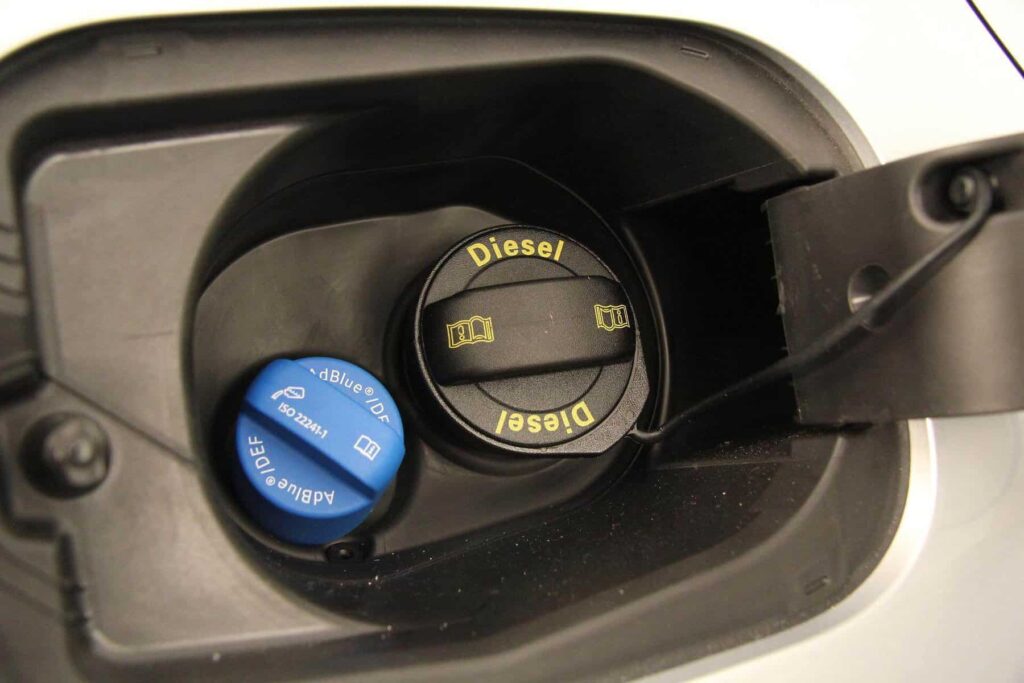
Where Does AdBlue Go?
All diesel vehicles using AdBlue will have a separate AdBlue tank and filler cap. Usually, the AdBlue tank is situated next to the diesel filler cap or in the car’s trunk. Once an AdBlue tank is filled, the trip will reset and reconfigure itself.
AdBlue must not be poured directly into the diesel tank or vice-versa.
AdBlue mixed in the diesel tank will cause damage to fuel injectors, fuel pumps, and filters. If you make this mistake, DO NOT start the vehicle or even try to drive it a few meters. You will cause serious damage.
Instead, call your roadside recovery, who will be able to aid in draining and cleaning the fuel tank.
Frequently Asked Questions
How Do I Start My Car After Running Out Of AdBlue?
After adding the AdBlue, turn the ignition on and wait for the engine to start. If the engine does not start immediately, you may need to wait a few minutes for the AdBlue to circulate through the system before trying again.
Can I Overfill My AdBlue Tank?
You can’t overfill an AdBlue tank. You could keep pouring it in, but it will just spill out.
Why Is The AdBlue Light Still On After Filling?
The AdBlue light can still be on after filling the tank for a few reasons. One possibility is that the AdBlue system needs to be reset. Another possibility is that there is still an issue with the AdBlue system, such as a faulty sensor or pump.
Final Say
AdBlue is a legal requirement for diesel cars with an SCR system, so there is no way around not using it.
The dangers of driving when you run out of AdBlue should be enough to put you off ever running the risk. Unfortunately, tens of thousands of drivers every year make this mistake. They are lucky to learn first-hand what happens if you run out of AdBlue. When you see the Diesel Exhaust Fluid light illuminate on the dashboard, don’t put off refilling with AdBlue. The quicker you get it done, the faster you can forget about it.
